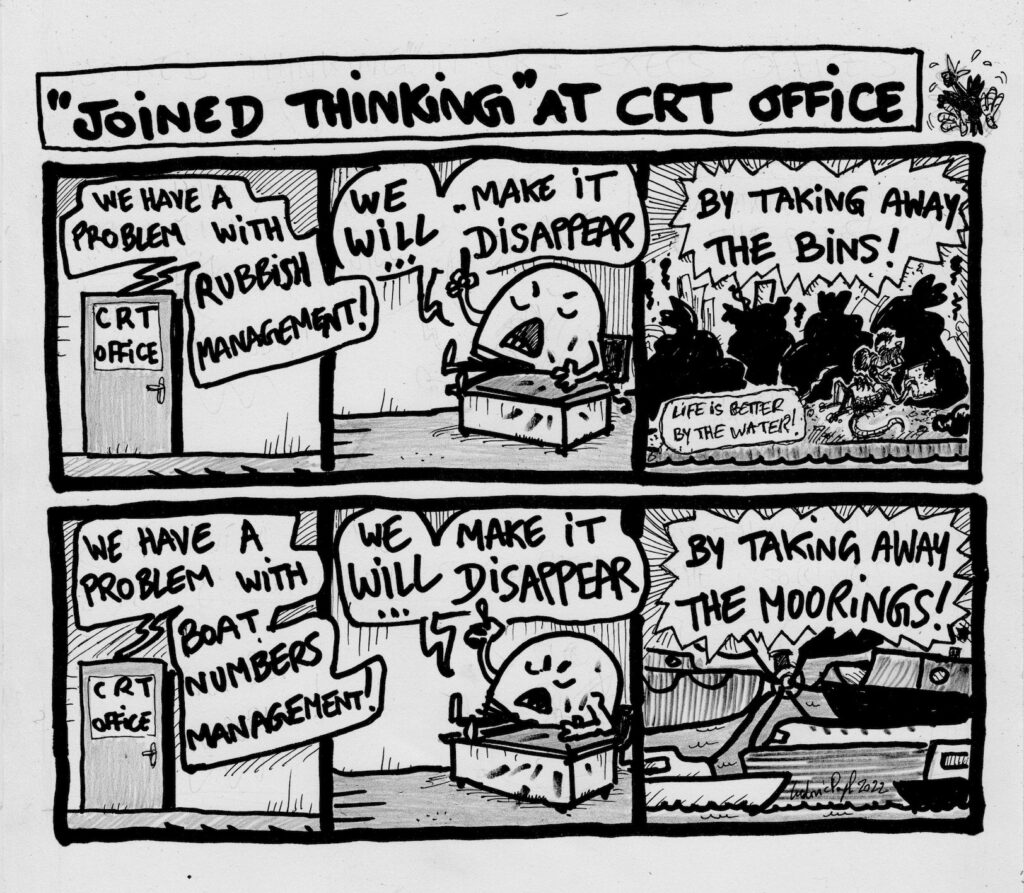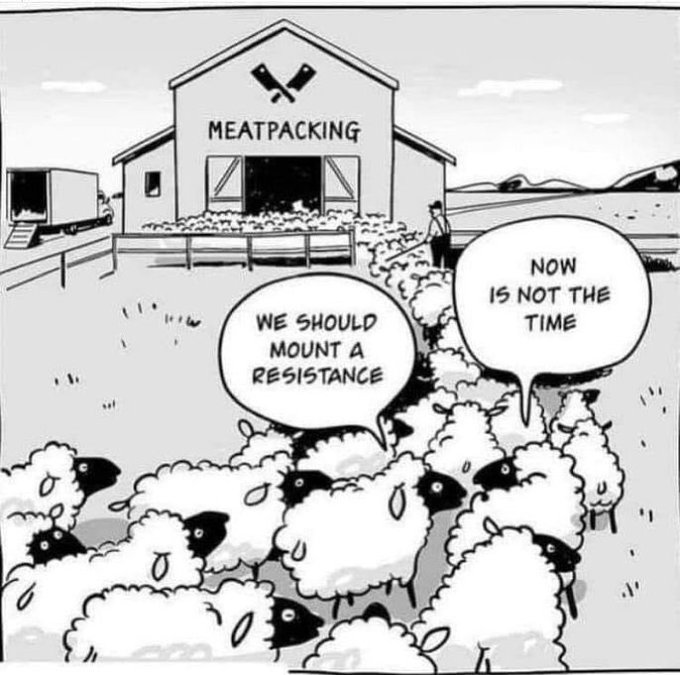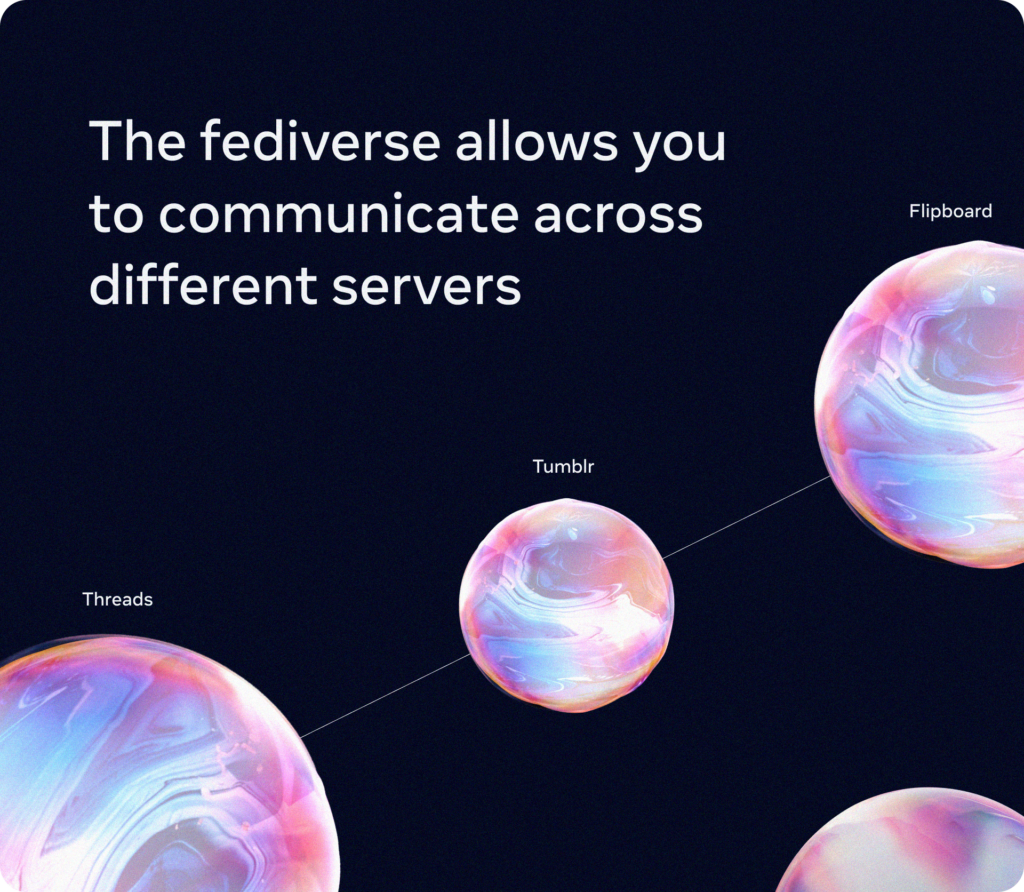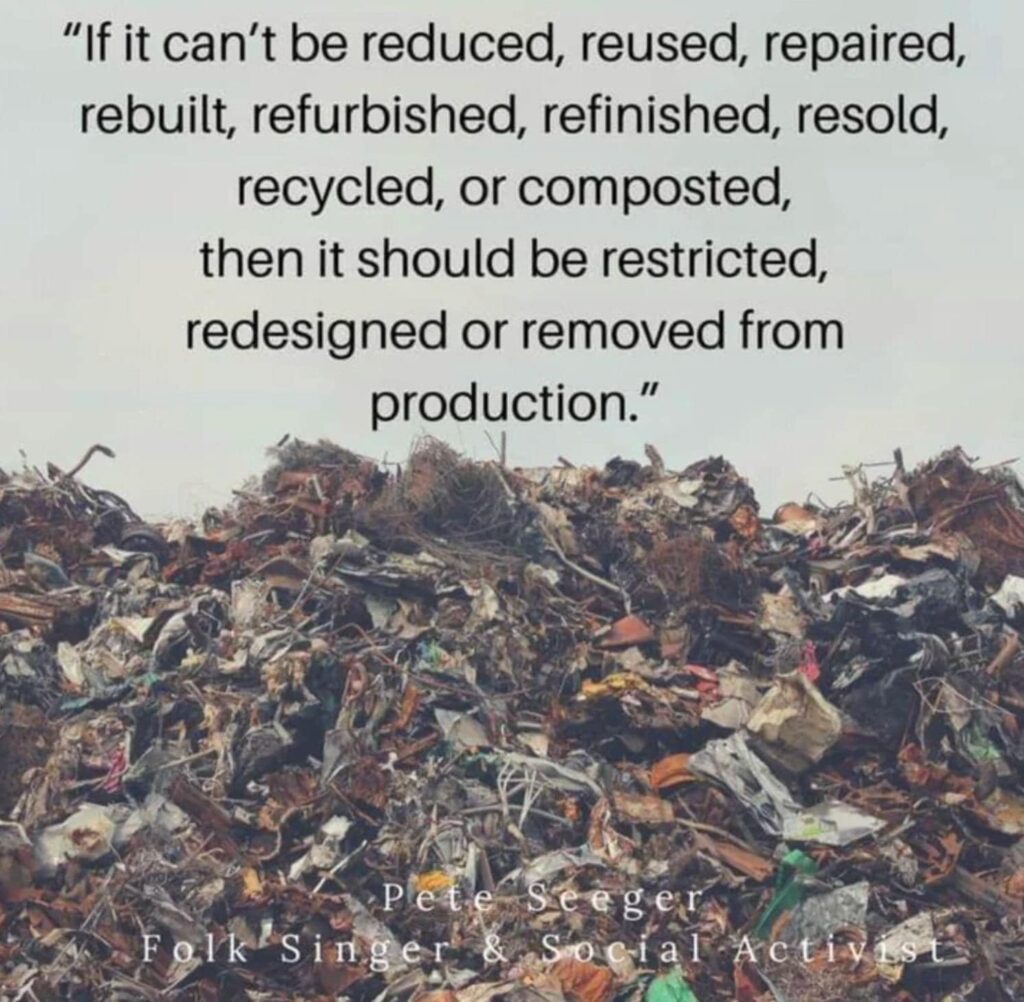Classification of different versions of the web (such as #Web1, #Web2, #Web3, #Web4, or #Web5) can be a source of confusion and FUD (fear, uncertainty, and doubt).
The hashtags #openweb and #closedweb provide a clear way to describe and understand the different types of web platforms. The #openweb refers to platforms that are open-source, community-controlled, and promote transparency, the #closedweb to platforms that are proprietary, controlled by a few large companies and lack transparency.
Projects like #indymediaback and #OMN are examples of grassroots of social tech. These projects are focused on promoting decentralized, community-controlled media and communication platforms.
It’s time to compost the normal #techshit, and to focus on developing social tech that is more inclusive, diverse, and community-controlled. This will require a change in the way we think about technology, and a shift away from the current dominant paradigm.
The solution to this problem is to develop social tech that steps away from the #geekproblem and focuses on the needs and perspectives of the community. This can be achieved by involving a diverse group of people in the development and decision-making process, and by promoting open-source code, open standards, open governance, and open data in technology development.
The #geekproblem is a social tech problem that refers to the negative impacts that technology can have on society when it is developed and controlled by a small group of people with limited perspectives and values. It is important to recognize that the #geekproblem is not only a technical issue but also a social issue.
It’s important to remember that fear can be a barrier for change, but by actively using the #4opens we can call out pointless things, call out the #deathcult and compost the #techshit, we can actively work towards a more sustainable future.
It’s important to remember that all thinking is critique and if you aren’t looking at the faults, you are likely not looking at the thing at all. Don’t be afraid, use the #4opens, take up gardening the compost, and plant the seeds of hope in the era of #climatechaos.
It’s important to lift your head and look, lift your shovel, dig and plant. By actively using the #4opens and composting the #techshit, we can actively work towards a more sustainable future.
Living in fear is a common response to the challenges of the era of #climatechaos, when many people are on their knees worshipping the #deathcult. However, it is important to call out pointless things as pointless and actively use the #4opens as a tool to compost the #techshit that is contributing to these challenges.
The problem is that the nice moral majority, our liberal friends, have not accepted that the system they try to push is broken. It’s pastime for change, and holding onto our current system is not helping. Their “common sense” is the problem we need to be fighting, as well as the far right.
We must come together as a united force to address the real issues and challenges facing society, rather than spending time fighting among ourselves.
The left fail is spending too much time fighting inside the left over this balance, instead of focusing on the real issues and challenges. #BLOCKING #stupidindividualism and worshipping the #deathcult all push this fight, and it’s important not to be a “PRAT” (i.e. a person who behaves in a foolish or unthinking way) on this subject.
The “left mess” we are in refers to the challenges and divisions within the left-leaning political spectrum. The idea that on the “fluffy” left, we must be “nice” to get people involved in social change, and on the “spiky” left, we need to be nasty to be effective in social change, both have some truth to it. It is important to find a balance between the two approaches in order to be effective in bringing about social change.
Group use of hashtags as an organizing tool. This can help to bring attention to issues, promote collaboration, and increase the visibility of alternative perspectives on technology and society.
Overall, these ideas are meant to challenge the status quo, promote ethical considerations in technology development, and increase transparency, accountability, and collaboration in the tech industry.
Pushing simple #KISS ideas like #openweb vs #closedweb and #4opens as a powerful way to judge and compost #techcrap to mediate the #techchurn. This can help to promote open-source code, open standards, open governance, and open data in technology development.
To work with this, some ideas include:
Naming the current “common sense” as worshipping the #deathcult and making #mainstreaming uncomfortable. This can help to bring attention to the negative impact of neoliberalism on society and the importance of addressing it.
#stupidindividualism is a term that refers to the idea that people prioritize personal gain over the well-being of others and the community. It is often associated with the last 40 years of neoliberalism and a part of the liberal 20th century consensus. It is a strong #BLOCK that prevents people from recognizing and addressing the negative impact of their actions on society.
One way to address this challenge is to promote grassroots, DIY producer governance through the use of the #OGB hashtag and project. This can help to ensure that the development of the fediverse is guided by ethical considerations and that it is focused on the needs of the producers and the community.
It’s important to note that it’s not always possible to avoid mess and challenges.
One of the challenges of the fediverse is that it is decentralized and lacks a centralized governance structure, making it difficult to coordinate and get things done. This can be seen as both a good thing and a bad thing, as it allows for a lot of creativity and innovation, but also makes it difficult to achieve goals and create a consistent user experience.
The #fediverse is a network of independently operated servers that communicate with each other using open protocols. It is often considered an “accidental” reboot of the #openweb, as it emerged organically as a response to the centralized nature of social media platforms, which are dominated by the #dotcons
While the #4opens is not a way of keeping large corporations out of the open-source development, it can be used as a tool to mediate and prevent any attempts to extinguish the open source community by promoting transparency, accountability, and collaboration. By using #4opens, developers, users and community members can have a better understanding of the motivations and intentions of the corporation and can act accordingly.
The #4opens is a powerful tool for promoting open-source code, open standards, open governance, and open data in technology development. It can help to ensure that the development of technology is guided by ethical considerations and that it is focused on the needs of the users and the community, rather than the profits and control of a few large companies.
Additionally, the website could include links to the wiki for more in-depth information and resources, as well as a section for community engagement and discussion. This could be a valuable tool in the fight against #techshit #techcurn and a powerful way to reboot the #openweb movement..
The website could feature a clean and modern design, with a focus on easy navigation and clear, concise information about the #4opens. The text could be polished to make it easy for people of all skill levels to understand. You can use the existing wiki page https://unite.openworlds.info/Open-Media-Network/4opens/wiki as a starting point and add more information and resources to it.
Creating a visually appealing and user-friendly website for the #4opens could be a powerful tool in promoting the use of open-source code, open standards, open governance, and open data in grassroots tech projects. This website could serve as a central hub for information and resources on the #4opens, and it could be designed to make it easy for people to understand and adopt the principles of the #4opens in their own projects.
The hashtag story is a way of using different hashtags to paint a picture of the current state of the world and the paths that can be taken to address the issues at hand. It involves defining each hashtag and how it relates to the larger narrative. Here is an example of a hashtag story:
#fahernista is about consumer capitalism and the negative impact it has on society, treating it as a social illness.
More http://hamishcampbell.com/2023/01/12/the-hashtag-story-shows-the-current-state-of-the-world/
The #4opens is a powerful tool to be used in grassroots tech projects to promote open-source code, open standards, open governance, and open data. It can help to ensure that the development of technology is guided by ethical considerations, and that it is focused on the needs of the community, rather than the #dotcons.
There is hope in this situation, as it is possible to take the “stupid” away from “individualism” and to embrace a more balanced and responsible form of individualism. This would involve recognizing the importance of community and the well-being of others, and taking actions that promote the well-being of society and ecology as a whole.
It is a path that may not be easy, but it is essential for creating a more equitable and sustainable society.
The hashtag #stupidindividualism is used as a critique of this form of individualism, and highlights the negative consequences it can have on society. It suggests that this form of individualism is not only detrimental to society, but also to the individuals who embrace it.
The concept of “stupid individualism” refers to a form of individualism that prioritizes personal gain and self-interest over the well-being of others and the community. It is often associated with the post-modern and neoliberal times we live in, where people are encouraged to prioritize their own needs and wants over the needs of others and ecology/society as a whole. This can lead to a lack of empathy, cooperation, and social responsibility.
The human condition does include a desire or need for blindness, as it is often easier to conform to the status quo and ignore the negative consequences of our actions, rather than to challenge them. Throughout history, there have been moments of rebellion and enlightenment, where individuals and groups have challenged the dominant social thinking and pushed for change.
The hashtags suggest that often people find meaning and build their lives in the twilight, constantly pushing away glints of light that might illuminate too strongly the social squalor and everyday cruelty that is hidden away from them in the shadows. They are blind to the negative consequences of capitalism, choose to ignore them in order to preserve their way of life.
People shape their own history and create their own reality, but they do so within the constraints of the existing social and historical conditions. People are not free to make history as they please, but are limited by the circumstances that are already in place and have been inherited from the past.
The theme is expressed by the hashtags, people are shaped by the dominant social thinking of capitalism to conform to the expectations of society, even when it is detrimental to their well-being
It’s important to remember that people are not passive recipients of social structures and institutions, and can actively shape their own consciousness and the world around them. By becoming aware of the mechanisms that shape their thoughts and beliefs, and by actively challenging the dominant social thinking, people can create a more equitable and sustainable society.
This creates a dynamic where people feel compelled to conform to the dominant social thinking, even when it is detrimental to their well-being, in order to avoid punishment and to gain reward. It can be difficult for people to break away from this dynamic and to challenge the #mainstreaming agenda because they fear the consequences of not conforming.
People choose to be blind in our “sunlight” world. One possible reason is that people are often motivated by the desire for reward and the fear of punishment. Those who conform to the dominant social thinking and push the #mainstreaming agenda may be rewarded with social acceptance, material wealth, and status. On the other hand, those who challenge the mainstreaming agenda may be punished with social rejection, financial insecurity, and marginalization.
The hashtags tell a story that people are often blind to this obverse thinking and that they block challenges to their blindness by rejecting or ignoring alternative perspectives. This can be seen as a form of self-defense mechanism to protect their current way of thinking and to avoid the discomfort of change.
People’s thoughts and beliefs are not formed independently, but are shaped by the social structures and institutions in which they live.
This idea is in the themes of the hashtags , as they all talk about how people are shaped by the dominant social thinking of capitalism, and the control and manipulation of individuals by this dominant thinking.
The hashtags suggest that the way out of this sordid story is to step away from the constant pursuit of consumer goods and services, and to reject materialism and consumerism in favour of more meaningful and fulfilling pursuits. They advocate for a simpler and more sustainable way of life, where people are not controlled or manipulated for profit and where ethical considerations are at the forefront of the development of technology.
For open-source code, open standards, and open governance.
The hashtags express a desire for a more equitable and sustainable internet. They advocate for open-source code, open standards, and open governance.
The story and world-view that these hashtags embody is a critical examination of the current state of technology, and a call for a more equitable and sustainable future.
They are a reminder of the importance of considering the impact of technology on society and individuals, and the need for ethical and responsible innovation.
The #hashtags #fahernista, #openweb, #dotcons, #4opens, #geekproblem, #techcurn, #nothingnew, #techshit and #encryptionists, all embody a similar story and world-view, which is the critique of the negative impact of technology and its development on society. They all express a concern that the #mainstreaming current state of technology is not aligned with the values of fairness, openness, and sustainability, and that it is being driven by the profit motives.
#encryptionists prioritize the use of encryption, viewing it as a way to protect privacy and security online.
The problem is that they prioritize encryption over important principles such as trust, transparency, and collaboration. These are essential for a progressive society, the idea of giving up control and building trust among groups.
This issue is then embedded in the code and becomes a problem when it leads to the creation of technology that undermines trust and cooperation.
#techshit usually happens when people do not ask whether the project is necessary or brings new value, but instead build it anyway, repeatedly.
#nothingnew this term encourages developers and creators to consider if the project they are working on is truly innovative and necessary, or if it is just a replication of something that already exists. It also highlights the importance of evaluating the impact of new technologies and products on society, and encourages developers to consider the perspectives of different stakeholders before creating new products or services.
Looking at early examples of #couchsurfing and #indymedia, as healthy of #openweb culture, they built on the principles of sharing and collaboration, and they prioritized community building and connection over profit. However, as they grew in popularity and became more mainstream, they began to face challenges such as commercialization, privacy issues and other problems that led to the decline of the community spirit that once defined them. They are examples of the “problem” of openweb culture.
#failbook and Google are examples of large tech companies that are accused of using their dominance and control over technology to exploit users and undermine society. Both companies have faced criticism for their data collection and use practices.
#4opens refers to the four principles of open source, the essentials for creating a more equitable and sustainable internet. A tool that can guide us towards a better, more humane path, promoting transparency and collaboration. They give us the power to JUDGE the technology we use and the companies that provide it to decide whether they align with our values and interests. In this way, 4opens are a source of power for both individuals and communities to take back control of their digital lives.
This closed web is a form of “technological slavery” in which users are subjected to the control and manipulation of these companies, and that users choose to use these services due to lack of alternatives and /or because they are not aware of the implications of their choices.
The #closedweb refers to the World Wide Web that is dominated by large companies, often referred to as “#dotcons”, who control the flow of information and access to online services through the use of proprietary technology and closed systems. These companies often use their power to collect and monetize user data, and to shape online experiences in ways that prioritize their own interests.
#Dotcons is a term that refers to companies that dominate the internet, and the negative impact they have on society. They are seen as feeding into the social illness of capitalism, prioritizing profit over the well-being of users and society.
The step away metaphor is a positive path to move away from this negative impact, this may include promoting open web and decentralized platforms, supporting alternative models, and encouraging more ethical and responsible behaviour.
The fight for #open in the #EU is a power politics struggle between the need for openness and transparency in an organization that is often characterized by closed decision-making processes and lack of accountability. Some people within the EU are aware of the need for change and are taking steps to pretend to be more open, but they are not truly committed to it.
It is possible that a small crack of #open might be enough to undermine the monolithic closed system, but the problem is that many people are willing to sell out #open in order to keep a bit of #closed. This means that the push for #open needs to be sharper and harder, with a more aggressive approach.
It is important to remember that #open has power over closed, just like light over darkness. By pushing for more openness and transparency, we can create a more democratic and accountable #eu
This might still require a stake and vampire level of PUSH, with a few blows of a mallet to drive the point home. We need to be aggressive, and not back down in the fight for #open in the EU.






